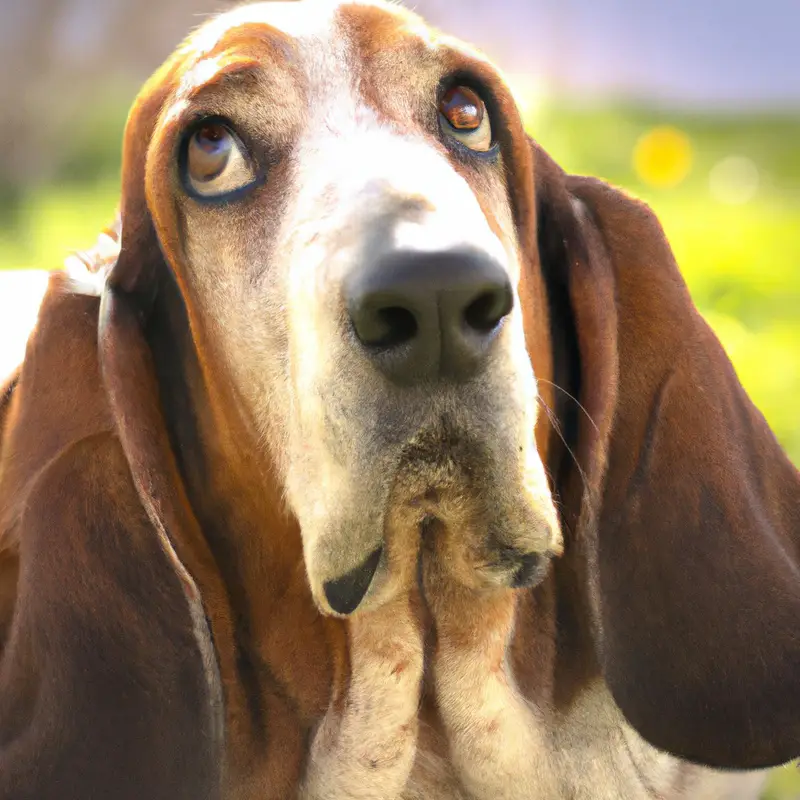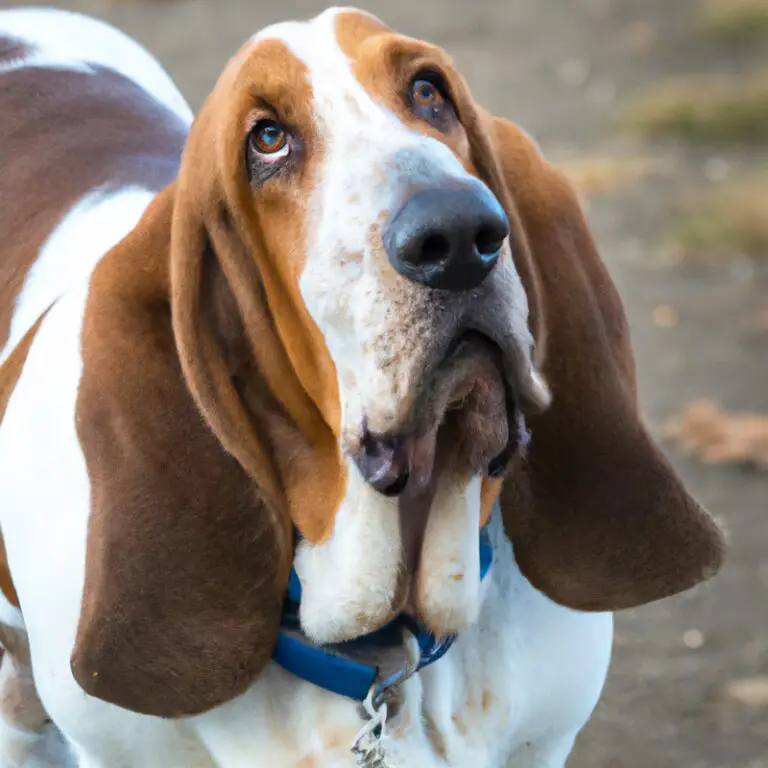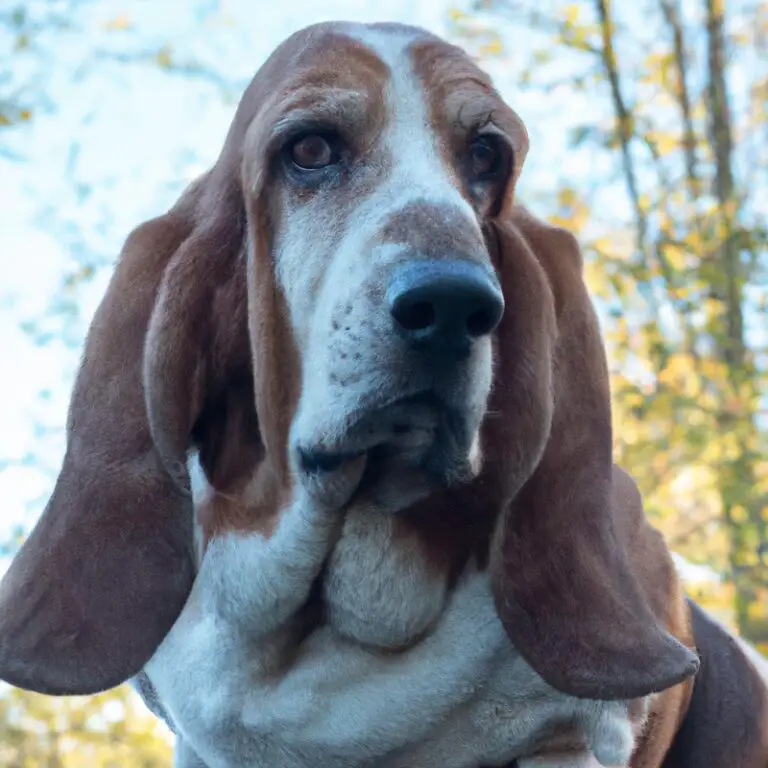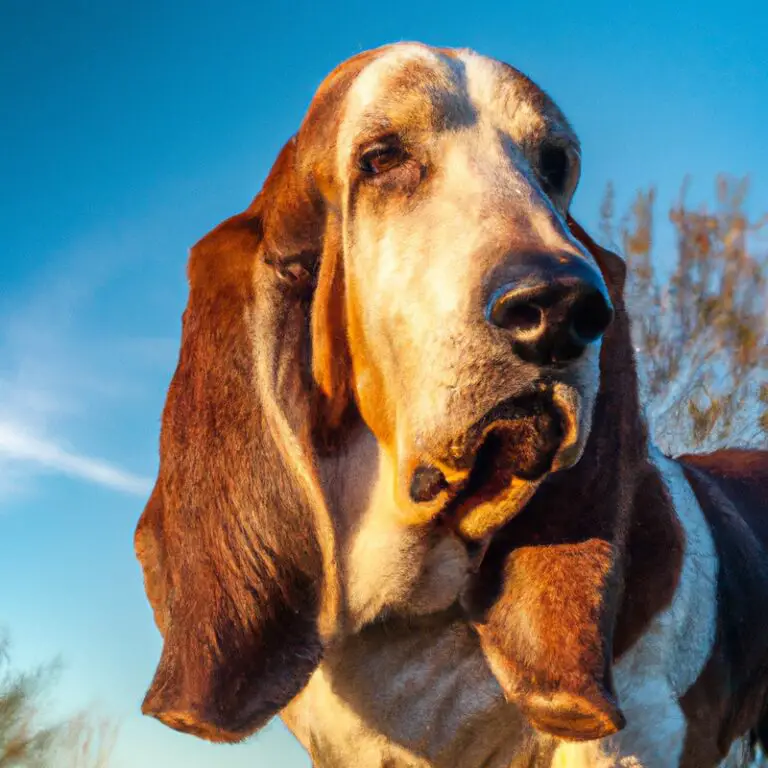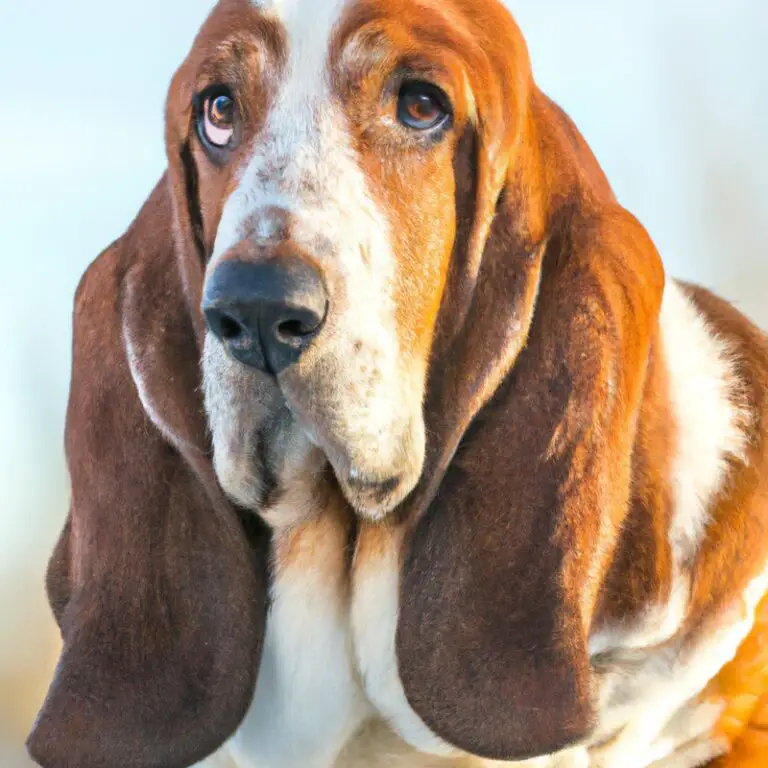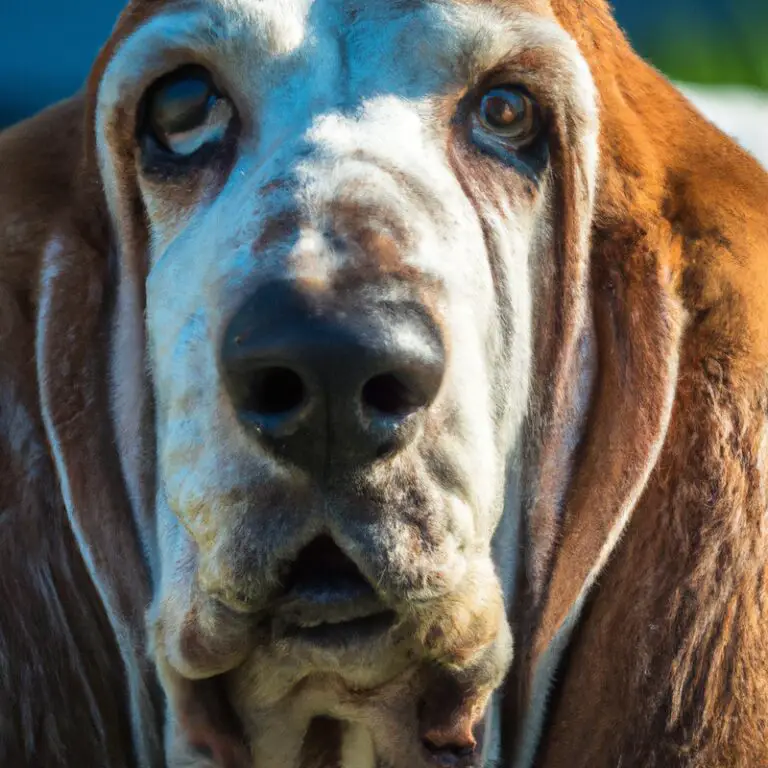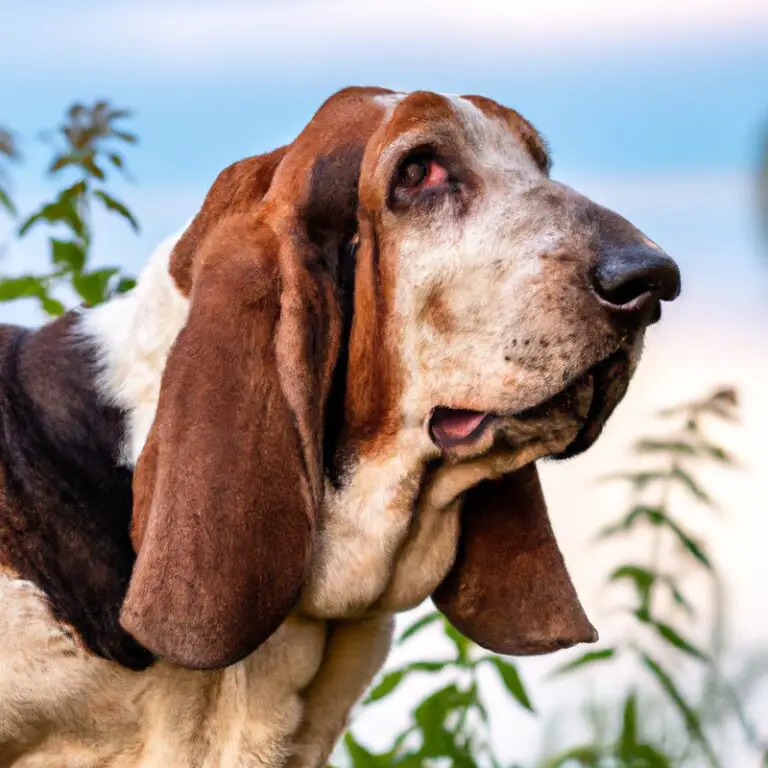What Are Some Common Health Issues That Basset Hounds May Face?
Key Takeaways:
- Basset Hounds are prone to obesity and back problems.
- They have a high risk of ear infections and skin issues.
- Basset Hounds are susceptible to eye conditions like glaucoma and cataracts.
- They may suffer from bloating and other gastrointestinal problems.
As a dedicated and loving Basset Hound owner, you want to ensure that your furry friend leads a happy and healthy life. But just like any other breed, Basset Hounds are prone to certain health issues that may require additional care and attention.
From obesity and ear infections to hip dysplasia and eye problems, these adorable droopy-eared canines can face a range of health challenges.
In this article, I’ll dive into the common health issues that Basset Hounds may encounter, providing valuable insights on prevention and when to seek veterinary care. So, let’s get started and keep those wagging tails wagging in good health!
| Common Health Issues in Basset Hounds | |
| Condition | Description |
| Obesity | Basset Hounds are prone to obesity due to their love of food and slow metabolism. |
| Ear Infections | Their long, floppy ears can trap moisture and bacteria, leading to frequent ear infections. |
| Intervertebral Disc Disease (IVDD) | This condition affects the spinal discs and can cause pain, difficulty in walking, and paralysis. |
| Glaucoma | Basset Hounds are susceptible to glaucoma, which is a condition that increases pressure within the eye. |
| Hip Dysplasia | Like many large dog breeds, Basset Hounds can develop hip dysplasia, a condition that affects the hip joint. |
| Hypothyroidism | This hormonal disorder can cause weight gain, hair loss, and lethargy in Basset Hounds. |
| Allergies | They frequently suffer from allergies, including skin allergies and food allergies. |
Common Health Issues in Basset Hounds
Obesity and related problems
Obesity is a common health issue that Basset Hounds may face. It can lead to a range of related problems, such as joint pain, diabetes, and heart disease.
It’s important to monitor your Basset Hound’s weight and ensure they maintain a healthy diet and exercise routine.
Avoid overfeeding and provide them with the right amount of food for their size and activity level. Regular veterinary check-ups can help catch and address obesity early on to prevent further complications.
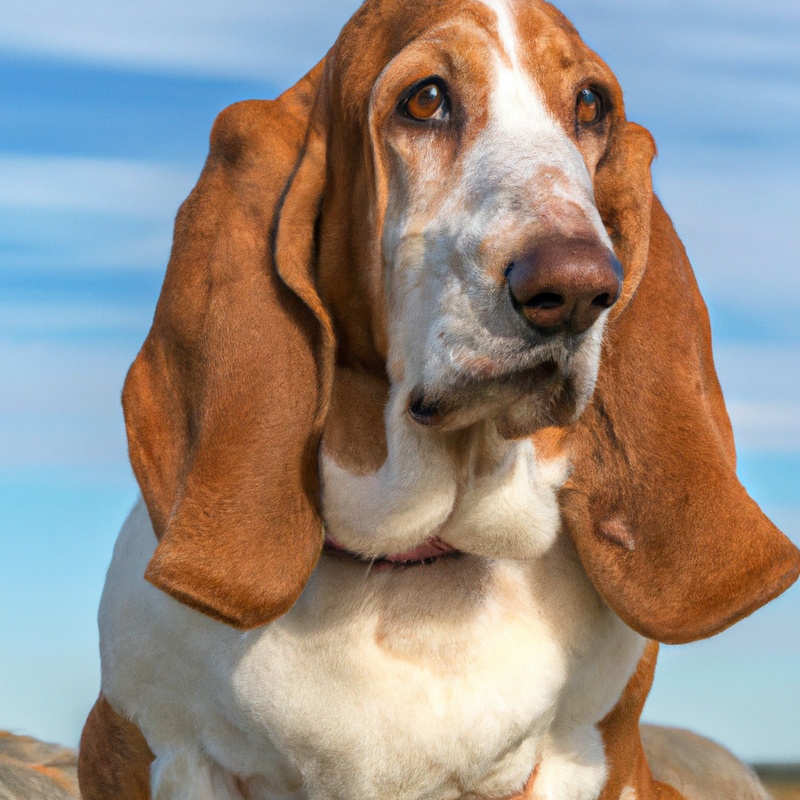
Ear infections
Ear infections are a common health issue in Basset Hounds. These dogs have long, floppy ears that can trap moisture, dirt, and debris, leading to infections.
Symptoms include scratching or shaking of the head, redness or swelling in the ear, and a foul odor.
Regular cleaning and drying of the ears can help prevent infections. It’s important to consult a veterinarian for proper diagnosis and treatment if your Basset Hound shows signs of an ear infection.
Hip dysplasia
Hip dysplasia is a common health issue in Basset Hounds.
It is a condition where the hip joint does not develop properly, causing instability and discomfort.
Symptoms may include limping, difficulty in getting up or climbing stairs, and decreased activity.
Regular exercise, maintaining a healthy weight, and providing joint-supportive supplements can help manage the condition.
Veterinary consultation, including X-rays, is necessary for proper diagnosis and treatment options.
By monitoring and addressing hip dysplasia early on, Basset Hound owners can provide their dogs with a better quality of life.
Eye problems
Basset Hounds are prone to certain eye problems that owners should be aware of. One common issue is cherry eye, where the tear gland in the third eyelid becomes visible.
They may also develop entropion, where the eyelids roll inward, causing irritation.
Another potential problem is cataracts, which can lead to vision loss. Regular eye exams with a veterinarian are crucial for early detection and treatment.
Owners should also keep an eye out for any signs of redness, discharge, or squinting, as these may indicate an underlying eye problem.
Taking prompt action can help maintain your Basset Hound’s eye health.

Intervertebral Disc Disease (IVDD)
Intervertebral Disc Disease (IVDD) is a common health issue seen in Basset Hounds.
It occurs when the discs between the vertebrae in the spine degenerate or herniate, causing pain and mobility problems.
Symptoms may include back pain, difficulty walking, and even paralysis.
IVDD can be managed through conservative treatment, such as rest, pain medications, and physical therapy.
In more severe cases, surgery may be necessary.
Early intervention and regular veterinary check-ups are essential for detecting and addressing IVDD in its early stages.
It’s important to consult a veterinarian if you notice any signs of IVDD in your Basset Hound.

Hypothyroidism
Hypothyroidism is a common health issue in Basset Hounds.
It occurs when the thyroid gland doesn’t produce enough hormones.
This can lead to weight gain, low energy, and a dull coat.
Treatment usually involves medication to supplement the thyroid hormones.
Regular check-ups and monitoring are crucial for managing this condition.
It’s important to consult a veterinarian for proper diagnosis and treatment if you suspect your Basset Hound may have hypothyroidism.
Food allergies and sensitivities
Food allergies and sensitivities are common issues that Basset Hounds may face.
Some Bassets may develop allergies to certain ingredients in their food, such as grains, beef, or chicken.
Symptoms of food allergies can include itching, skin rashes, gastrointestinal upset, and ear infections.
Sensitivities to certain ingredients may cause digestive issues like diarrhea or vomiting.
If you notice these signs, it’s important to work with your veterinarian to identify the allergen and find suitable alternative food options for your Basset Hound.
Preventive Measures for Basset Hound Health
Proper nutrition and portion control
Proper nutrition and portion control are vital for maintaining the health of your Basset Hound. Providing them with a balanced diet that meets their nutritional needs is essential.
Choose high-quality dog food specifically formulated for Basset Hounds, and avoid overfeeding.
Portion control is crucial to prevent obesity, which can lead to numerous health issues. Talk to your veterinarian about the appropriate amount of food for your dog based on their age, weight, and activity level.
Regularly monitoring their weight and adjusting their food intake accordingly will help keep them healthy.
Regular exercise and weight management
Regular exercise and weight management play a significant role in maintaining the overall health of your Basset Hound.
It helps prevent obesity, which can lead to various health issues.
Consistent exercise helps keep their weight in check, strengthens their muscles and joints, and improves cardiovascular health.
Engage them in daily walks or play sessions to support their physical and mental well-being.
It’s crucial to monitor their weight and adjust their diet accordingly to ensure they stay healthy and happy.
Ear care and hygiene
Proper ear care and hygiene play a significant role in maintaining the health of your Basset Hound. Regular cleaning helps prevent ear infections and keeps their ears clean and free of wax buildup.
Here are a few tips for ear care:
- Check their ears regularly for signs of redness, swelling, or discharge.
- Gently clean the outer part of the ear with a veterinarian-approved cleanser and a soft cloth or cotton ball.
- Avoid inserting Q-tips or any other objects into the ear canal, as this can damage their delicate ear structures.
- If you notice any unusual odor or your Basset Hound is shaking their head excessively, consult your vet for a thorough examination.
Remember, maintaining good ear hygiene is vital in promoting overall health and comfort for your furry friend.
Regular veterinary check-ups and vaccinations
Regular veterinary check-ups and vaccinations are crucial for the overall health and well-being of your Basset Hound. These check-ups allow the veterinarian to monitor your dog’s health, catch any potential issues early on, and provide necessary preventive care.
Vaccinations protect your furry friend against common diseases and help maintain their immune system.
By scheduling regular appointments and staying up-to-date on vaccinations, you can ensure your Basset Hound stays healthy and happy for years to come.
Hip dysplasia screening and preventive measures
Hip dysplasia screening and preventive measures are important for maintaining the overall health of Basset Hounds. Regular screening can help detect any signs of hip dysplasia early on, allowing for prompt intervention.
Preventive measures include keeping the pup at a healthy weight, providing exercise that is gentle on the joints, and avoiding activities that put excessive strain on the hips.
Additionally, breeding programs should prioritize hip evaluation to reduce the prevalence of hip dysplasia in future generations. Regular veterinary check-ups are also crucial for monitoring the dog’s hip health.
Eye care and monitoring
Eye care and monitoring is an essential aspect of maintaining your Basset Hound’s overall health.
Regularly check your dog’s eyes for any signs of redness, discharge, or cloudiness.
Keep their eyes clean by gently wiping away any debris with a damp cloth.
Monitor for common eye issues like cherry eye, entropion, or cataracts.
If you notice any abnormalities or changes in your dog’s eyes, it’s important to consult a veterinarian for proper diagnosis and treatment.
Early intervention can help prevent further complications and ensure your Basset Hound’s eyes stay healthy.
Discouraging jumping and providing proper support
One way to promote the health of your Basset Hound is to discourage jumping and provide proper support.
Jumping can strain their joints and potentially lead to injuries.
To discourage jumping, teach your Basset Hound alternative behaviors like sitting or lying down when they want attention.
Providing proper support means using ramps or stairs to help them navigate furniture and preventing them from jumping off high surfaces.
These measures can help prevent joint problems and keep your Basset Hound healthy and happy.
Monitoring thyroid health
Monitoring thyroid health in Basset Hounds is essential for their overall well-being. Regular blood tests can help detect any abnormalities in the thyroid hormone levels.
Symptoms of thyroid issues may include weight gain or loss, hair loss, or changes in behavior.
Monitoring thyroid health allows for early intervention and proper treatment, which can greatly improve the quality of life for your Basset Hound. Regular check-ups with a veterinarian and discussing any concerns or symptoms are important in maintaining your Basset Hound’s thyroid health.
Identification and management of food allergies
Identifying and managing food allergies in Basset Hounds is essential for their overall health and well-being. If you suspect your Basset Hound has a food allergy, look for symptoms such as skin irritation, digestive issues, or chronic itching.
To identify the specific allergen, your veterinarian may recommend an elimination diet or blood tests.
Once the allergen is identified, the management usually involves avoiding the trigger ingredient and providing a balanced diet with alternative options. It’s important to work closely with your vet to ensure your Basset Hound’s dietary needs are met while avoiding allergens.
When to Seek Veterinary Care
Recognizing signs of health issues
Recognizing signs of health issues is important for early intervention and proper treatment.
When it comes to Basset Hounds, some common signs include excessive weight gain or loss, frequent ear scratching or head shaking, limping or difficulty in walking, redness or discharge from the eyes, and back or neck pain.
Other signs may include sluggishness, changes in appetite or drinking habits, and skin irritations.
If you notice any of these signs, it’s crucial to consult a veterinarian for a proper diagnosis and treatment plan.
Remember, timely intervention can make a big difference in your Basset Hound’s health and well-being.
Importance of early intervention
Early intervention is crucial for the health of your Basset Hound.
Identifying and addressing health issues in their early stages can prevent them from worsening or becoming more difficult to treat.
By seeking veterinary care at the first sign of a problem, you can ensure that your Basset Hound receives prompt diagnosis and appropriate treatment.
Remember, early intervention can make a significant difference in your dog’s overall health and well-being.
Consulting a veterinarian for proper diagnosis and treatment
Consulting a veterinarian is essential for the proper diagnosis and treatment of any health issues that your Basset Hound may face.
Veterinarians have the expertise and knowledge to accurately assess your pet’s condition and recommend the appropriate course of action.
They can conduct tests, examinations, and provide tailored treatment plans specific to your dog’s needs.
By seeking veterinary care, you can ensure that your Basset Hound receives the best possible care and maximizes their chances of a full recovery.
Final Verdict
Basset Hounds are prone to certain health issues that owners should be aware of. Obesity, ear infections, hip dysplasia, eye problems, intervertebral disc disease, hypothyroidism, and food allergies are some common concerns.
However, by taking preventive measures like proper nutrition, regular exercise, and regular vet visits, these issues can be effectively managed.
Early recognition and intervention are crucial, so it’s important to monitor your Basset Hound’s health closely and seek veterinary care when needed. With proper care and attention, you can ensure a happy and healthy life for your beloved Basset Hound.

